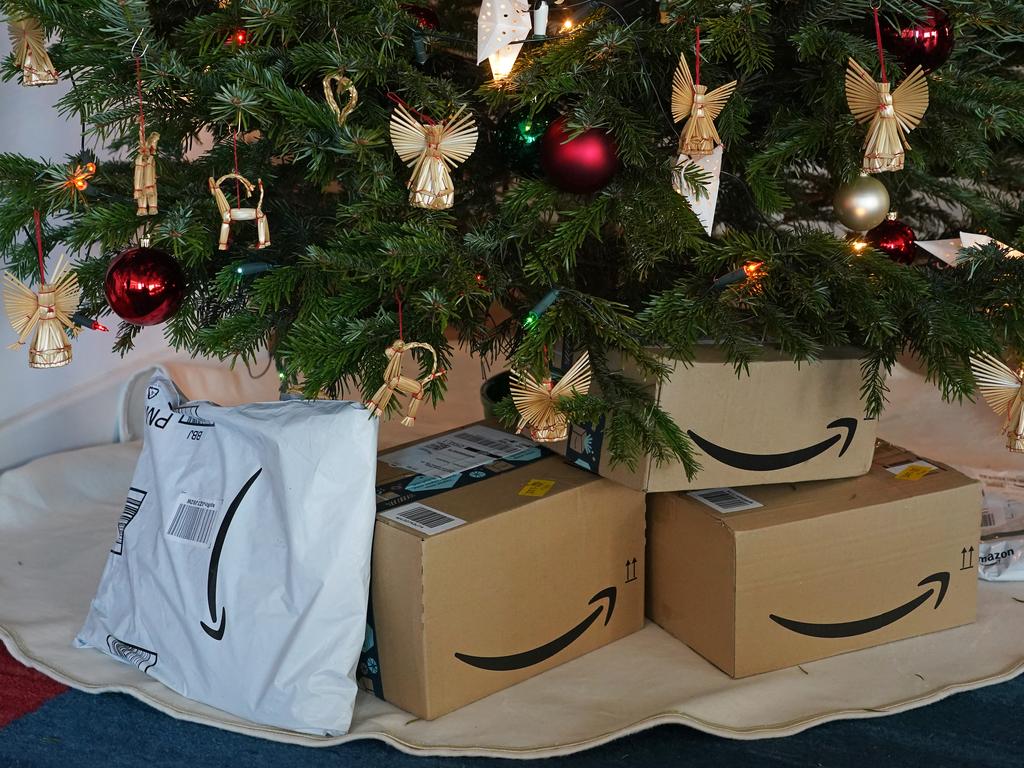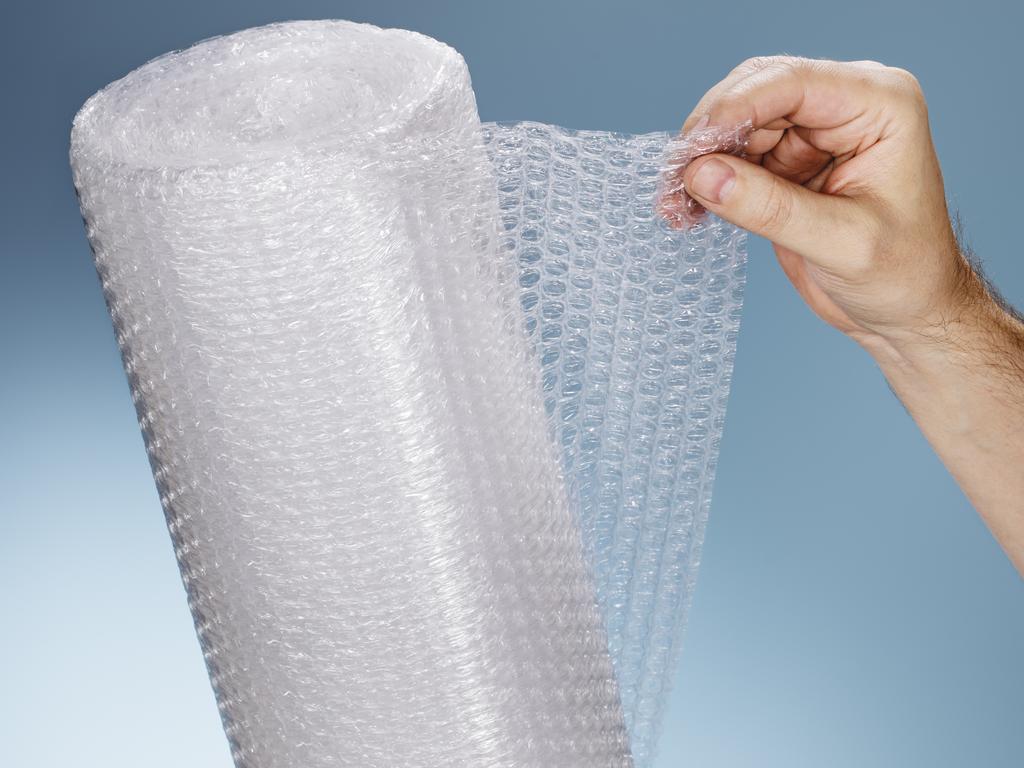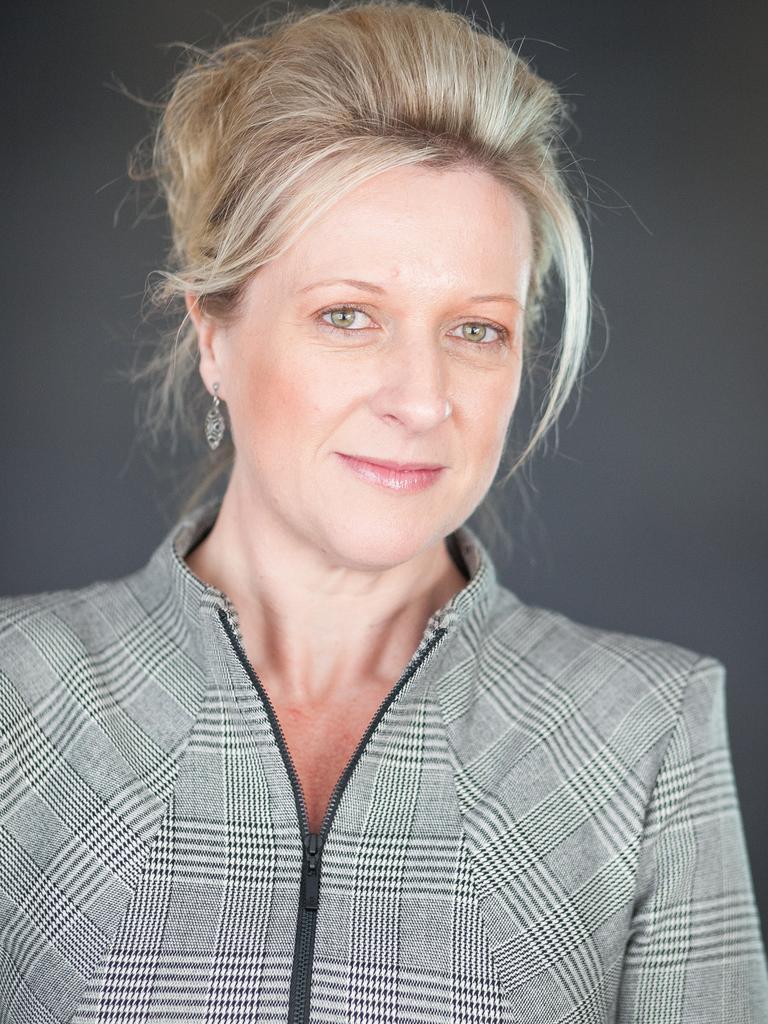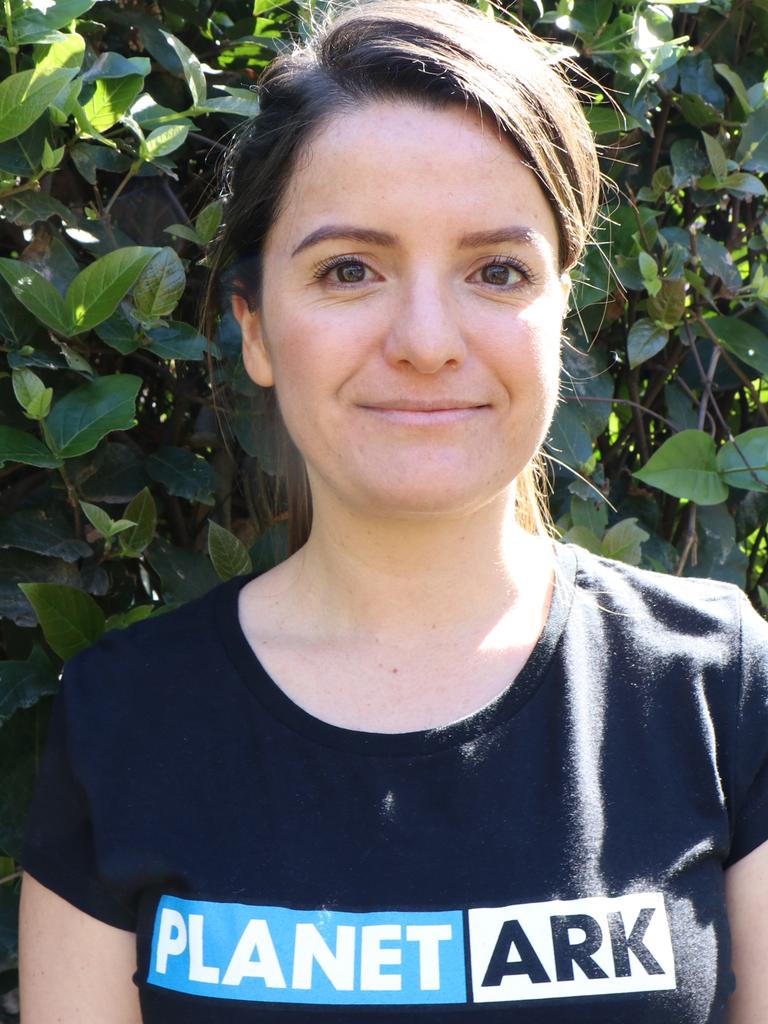Christmas’s unwanted gift: plastic packaging
As a new report reveals the extent of Amazon’s use of plastic, here’s what to do with bubble wrap from your Christmas shopping.
With a record number of Christmas presents ordered online this year, Planet Ark is advising Australian families not to include loose plastic packaging such as bubble wrap in their council recycling bins.
Alejandra Laclette from Planet Ark told News Corp that while online delivery packaging such as bubble wrap and plastic bags could be recycled through supermarkets and other specialist collection points, she warned that such soft plastics were the “number one contaminant in our kerbside recycling streams”.
Planet Ark’s RecyclingNearyou.com.au website offers advice about what items can and cannot be accepted by local councils.
Ms Laclette said the site always experienced a surge in traffic after Christmas, because “people want to see what they can and cannot recycle”.
The reminder comes as a new global report estimated online retailer Amazon on its own generated an astounding 465 million pounds (210 million kilograms) in plastic packaging waste in 2019.

The report by global Ocean action group Oceana also stated this waste, in the form of air pillows alone, would circle the Earth more than 500 times.
Amazon criticised the findings in a Forbes.com story, stating it used “about a quarter of the plastic packaging estimated by Oceana’s report”, which would still tally 116 million pounds, or 52 million kilograms.
“Since 2015, we have reduced the weight of outbound packaging by more than a third, and eliminated almost one million tons of packaging material,” the company statement read.
“As a founding member of The Climate Pledge, Amazon is committed to protecting the planet and continues to welcome informed, constructive dialogue with NGOs and others on these issues.”
Amazon Australia declined to provide additional comment on the report when asked by News Corp.
It has been a boom year for online retailers in Australia, spurred on by COVID-19 lockdowns.
A recent Australia Post report stated online shopping has “surpassed all expectations” in 2020, with web purchases up more than 20 per cent on the 2019 pre-Christmas season.

While many consumers welcome the use of bubble wrap, as it keeps their goods pristine, a new survey reveals increasing consumer concern about the over-packaging of products.
The Toluna survey of 1035 Australians found an overwhelming majority (82 per cent) wanted products that are packaged sustainably, and nearly two thirds (63 per cent) say the issue is more important to them now than it was two years ago.
One in four consumers aged under 34 has stopped buying an item in the past six months because of sustainability concerns, the survey stated.
Twenty-one per cent of shoppers aged 35-55 said they had done the same thing in the past six months, while only nine per cent of consumers aged over 55 had done so.
The increasing eco-concern is reflected in Christmas gift buying, with 43 per cent of survey respondents saying they were purchasing more sustainable gifts this year, and 21 per cent opting for gifts without unnecessary packaging.
A report into recycling rates in Australia last month found that less than 50 per cent of plastics are currently recycled, and just 10 local councils across the country accepted soft plastics. But the Toluna research showed that more than one in four Australians (28 per cent) thought their local councils dd accept soft plastics.
Brooke Donnelly, CEO of the Australian Packaging Covenant Organisation, said there was “work to be done” in making online delivery packaging more sustainable but many retailers were making a “real effort”.


“Earlier this year The Iconic announced all of its delivery satchels are now made from 100 per cent recycled plastics (which in turn can be recycled via REDcycle soft plastics bins at Coles and Woolworths). Similarly, Australia Post confirmed its satchels will also be made from 100 per cent recycled plastic by 2021,” she said.
Consumers who wanted change in this area should “vote at the cash register and support brands that are doing the right thing,” Ms Donnelly said.
Australian businesses have committed to making all packaging 100 per cent reusable, recyclable or compostable by 2025, she said.
“I’d encourage all Australians to ask their favourite brands what they are doing to meet the 2025 targets and support businesses that are taking practical action to implement them,” Ms Donnelly said.
Originally published as Christmas’s unwanted gift: plastic packaging




